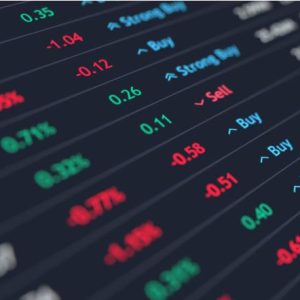Economists clash violently as they try to decipher, model and propose remedies for the current whirlwind. Everything and its opposite can be found in the “solutions” they propose. The war that divides them is fought in MIT, Harvard, Oxford, Bocconi, the Paris School of Economics, the Toulouse School of Economics, think tanks, international financial institutions and the media. Nobel Prize winners, heads of the IMF, the World Bank, the Fed and the ECB, academics from all over the world and thinkers from all walks of life are all involved. The authors review their major economic debates: inequality, debt, inflation, China, crypto-currencies, the Vatican (!), democracy, libertarians…focusing on their conflicting theses, their analytical errors and inaccuracies.
They also draw up portraits of the main protagonists in these face-offs – D. Cohen, T. Piketty, O. Blanchard, M. Aglietta, J. Stiglitz, L. Summers, J. Milei, P. Aghion, D. Acemoglu – and their masters of thought, from Keynes to Schumpeter… and conclude with a chapter on “the tribes”: institutionalists, Keynesians, libertarians, free traders, Malthusians, Marxists, monetarists and Schumpeterians. A lively, enlightening investigation into the ideas of the men and women who make or break today’s economy, written in the style of experienced journalists that makes this book easy to read.
An excellent work, whose title is a true reflection of the book and of the authors’ desire to show that economics is not an “exact science”, that no science tells us what to do. The erudition in terms of economic history is notable, and the points of view are set out clearly without bias, with an organization linked to topical themes in a long-term perspective. The end of each chapter includes a summary of ideas and, in some cases, the beginnings of the author’s opinion.
Oppositions are sometimes linked to ideological or philosophical presuppositions, but this is not surprising when one recalls the history of this subject. We might have expected the debates to have been placed more in the context of time, showing that economists are often better at explaining the past than predicting the future, and that what is true under certain conditions is no longer true when those conditions change.
The nature of a “human” science is that the truths of one moment are not always valid in different temporal and geographical fields of study. Homo economicus may once have behaved rationally, but this is no longer the case, for many reasons, including those aimed at exploiting the cognitive biases of each individual, those linked to filtered, alternative, epistemic facts, sifted through the sieve of feeling, emotion and fear.
In these matters too, the 21st century is not the 18th century…! But, as André Comte-Sponville points out in his foreword, if “no knowledge can take the place of will, no will can do without knowledge”.
chronicle by Dominique Chesneau






